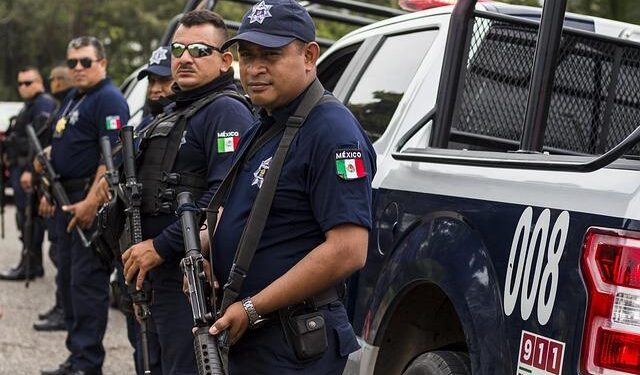Ankara, TĂĽrkiye – A Turkish court has issued an arrest warrant for former Israeli Prime Minister Benjamin Netanyahu, accusing him of involvement in alleged genocide in Gaza. The unprecedented legal move marks a significant escalation in TĂĽrkiye’s condemnation of Israeli military actions in the region. The warrant, announced by the Ä°stanbul Chief Public Prosecutor’s Office, demands Netanyahu’s detention should he enter Turkish jurisdiction, reflecting Ankara’s intensified stance amid ongoing tensions in the Middle East. This development adds a new dimension to the international discourse surrounding accountability and justice over the recent conflicts in Gaza.
Turkish Judiciary Moves to Hold Netanyahu Accountable for Alleged Gaza Atrocities
The Turkish judiciary has taken an unprecedented step by issuing an arrest warrant for former Israeli Prime Minister Benjamin Netanyahu. The warrant accuses him of orchestrating grave war crimes during recent military operations in Gaza, which have drawn widespread international condemnation. This legal move, backed by detailed investigations into civilian casualties and alleged use of disproportionate force, reflects Ankara’s determination to hold global leaders accountable under international law.
Key details emerging from the case include:
- Charges: Allegations of genocide, crimes against humanity, and violations of the Geneva Conventions.
- Legal basis: Authority derived from universal jurisdiction principles allowing prosecution of grave crimes regardless of location.
- International response: Mixed reactions from global governments and human rights organizations, with calls for impartial justice.
| Element | Description |
|---|---|
| Issuing Authority | Ä°stanbul Prosecutor’s Office |
| Legal Framework | International Criminal Law & Turkish Penal Code |
| Primary Allegations | Mass Killings, Targeting Civilians |
| Potential Outcomes | International Arrest Request, Trial in Absentia |
Implications for International Relations Between Turkey Israel and the Middle East
The Turkish court’s unprecedented decision to issue an arrest warrant against former Israeli Prime Minister Benjamin Netanyahu marks a critical juncture in the tumultuous relations between Turkey, Israel, and the broader Middle East. This legal move not only intensifies diplomatic strains but also signals Ankara’s willingness to challenge Israel on the international stage regarding accountability for actions in Gaza. The measure could embolden other regional actors who harbor grievances against Israel, potentially complicating ongoing peace efforts and regional cooperation frameworks.
Key implications include:
- Heightened diplomatic tensions: The warrant may stall normalization talks and bilateral agreements, leading to a diplomatic freeze between Turkey and Israel.
- Shifts in alliances: Regional states may recalibrate their positions in response to Turkey’s assertiveness, affecting power dynamics across Middle Eastern geopolitics.
- Legal precedents: This case could set a new benchmark for international prosecutions related to conflict crimes, challenging sovereignty claims and immunity protections.
| Potential Outcome | Impact on Relations |
|---|---|
| Diplomatic Retaliation | Suspension of joint security initiatives |
| International Mediation | Increased third-party involvement in conflict resolution |
| Regional Polarization | Strengthened alliances against or in favor of Israel |
Calls for Strengthened Global Measures to Prevent and Punish War Crimes
Global outrage has intensified following the Turkish court’s unprecedented decision to issue an arrest warrant for former Israeli Prime Minister Benjamin Netanyahu, citing allegations of war crimes linked to the conflict in Gaza. Legal experts and human rights organizations worldwide are urging the international community to adopt more robust frameworks that not only prevent atrocities but also ensure swift accountability for those responsible. The move underscores persistent calls for an enhanced global legal infrastructure capable of transcending diplomatic barriers and political interests.
Advocates emphasize several key areas requiring urgent attention, including:
- Strengthening the jurisdiction of international courts, such as the International Criminal Court (ICC), to prosecute war crimes without interference.
- Improving cooperation among nations to facilitate extradition and legal procedures for suspects accused of crimes against humanity.
- Enhancing monitoring mechanisms on conflict zones to provide indisputable evidence and protect victims.
| Proposed Measure | Impact |
|---|---|
| Universal Jurisdiction Expansion | Enables cross-border prosecution |
| International Legal Cooperation | Streamlines suspect extradition |
| Conflict Zone Surveillance | Improves evidence collection |
Concluding Remarks
The issuance of an arrest warrant for former Israeli Prime Minister Benjamin Netanyahu by a Turkish court marks a significant escalation in the legal and diplomatic tensions surrounding the conflict in Gaza. As this unprecedented move unfolds, it highlights the growing international efforts to hold political leaders accountable for alleged war crimes. TĂĽrkiye Today will continue to monitor developments in this case and its broader implications for Turkish-Israeli relations and international justice.
















